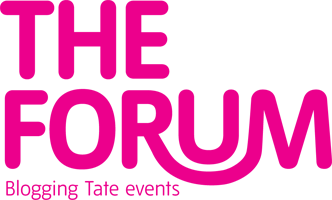Ironically, Shami Chakrabarti’s last job before she left the Home Office saw her drafting anti-terror legislation. This institutional-insider’s perspective, together with her legal background and front-line human rights activism as the current Director of Liberty, made her a particularly apposite speaker to lead a talk and discussion in relation to 9 Scripts From a Nation at War, currently showing in the Level 2 Gallery.
This ten-part video installation explores the way words and their definitions have been shuffled around, stacked together and split apart by lawyers, the military, politicians, journalists and the public in response to the Iraq conflict. This results in a maze of casuistry in which any surety is lost – as one installation title has it: ‘We are the good guys, at least in the version we like to stick to.’ Demonstrating that moral and ethical questions can often seem composed of many shades of grey rather than black and white, 9 Scripts From a Nation at War sparks a multitude of questions about the rights of the individual in relation to the state and the rest of society.
Although the video pieces frequently address these issues from an American perspective, Chakrabarti was quick to translate them into a specifically British context, arguing that in the UK ‘“human rights” have become dirty words’, and that the need for debate regarding the status of human rights in Britain is now particularly pressing. She cites as evidence attacks from politicians and the press on the 1998 Human Rights Act, which made the rights set out by the European Convention on Human Rights into UK law, and posits that Britain has ‘been on a slippery slope since the 1990’s’, with 9/11 acting ‘as the catalyst’ which accelerated a tendency to circumscribe civil liberties in the name of the war on terror.
Interestingly, Chakrabarti links the undermining of human rights with the current emphasis on the concept of ‘citizenship’, which she feels can foster a dangerously polarised ‘us and them’ mentality, and prioritizes an inward-looking nationalism at the expense of the more universal idea of ‘humanity.’ Guantanamo, she feels, has been able to come into being precisely because it perches just beyond the borders of America, and in citizen-speak can easily be classified as an irrelevant ‘elsewhere’.
As the ensuing discussion demonstrated, the debate surrounding human rights covers complex territory, throwing up the kind of questions that generate a myriad of arguments and counter-arguments. One audience member asked Chakrabarti if she could conceive of such a thing as ‘ethical violence’, another if she felt that the concept of human rights is in danger of being arbitrarily ethnocentric (answers: yes, in certain situations, she could see the necessity of having to ‘take a life to save life’ and no, for Chakrabarti human rights are by definition needs and aspirations which unite people throughout the world).
Difficult as such discussion can be, they go a long way to stimulate the independence of thought that works such as 9 Scripts From a Nation at War also promote. Both provide an area in which the individual can begin to formulate their personal response whilst learning to balance it with the considerations and perspectives offered by others. Chakrabarti for one is certainly encouraged by what she describes as the movement of the human rights debate ‘into the cultural sphere’, stressing that ‘human rights can’t just live in the courtroom.’
Sunday, June 29, 2008
The Liberal Arts
Labels:
human rights,
Liberty,
video installation
Subscribe to:
Post Comments (Atom)





No comments:
Post a Comment